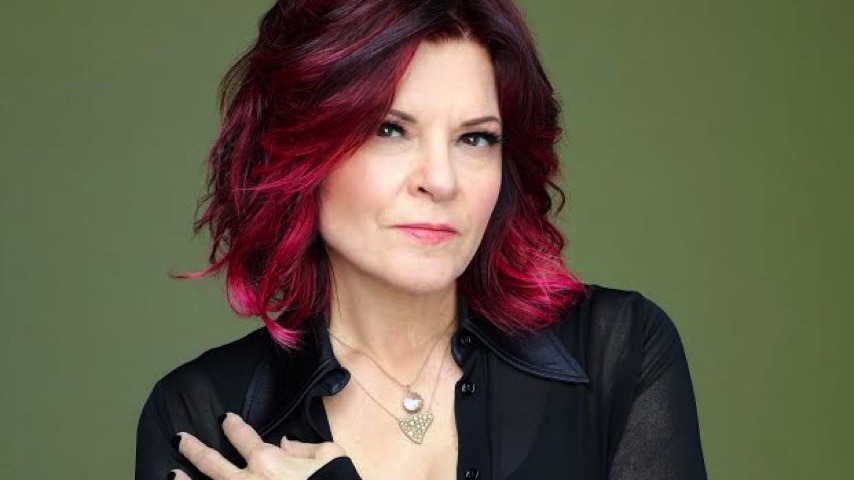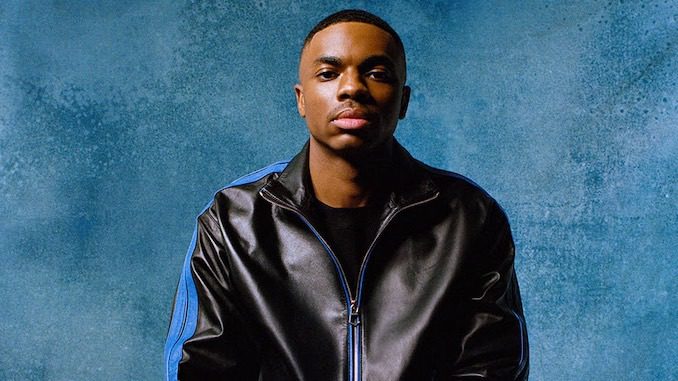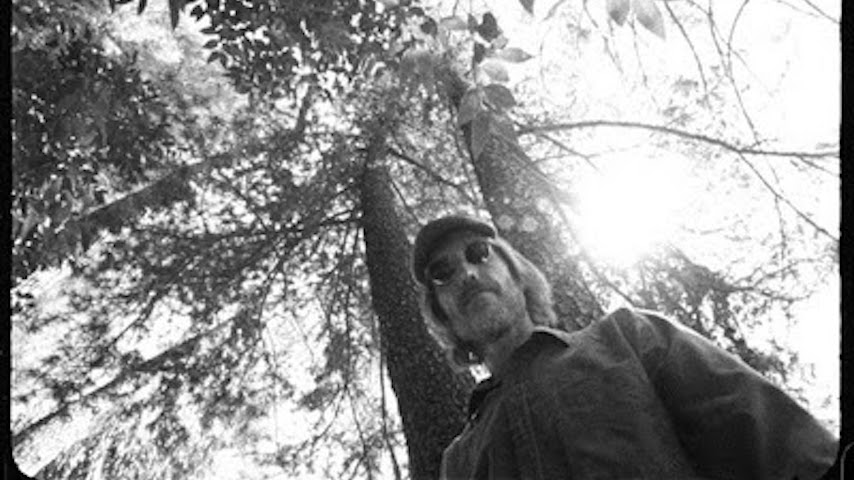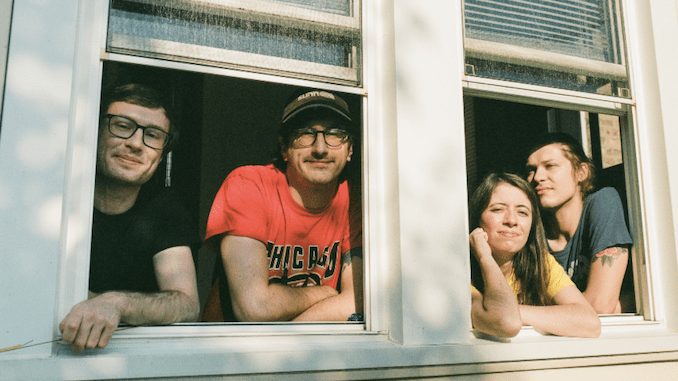Some artists have utilized all the lockdown time attendant to the coronavirus to stop, take a breather, take stock, and possibly re-chart their creative course going forward. Not four-time Grammy winner Rosanne Cash. Like her legendary outlaw-country father, the late Johnny Cash—who, when things looked darkest at the end of his life, was compelled to keep making comeback albums with producer Rick Rubin—she mounted the bucking COVID-19 bronco and quickly tamed the beast down to an agreeable trot. And she’s happy to share the rodeo results, via “Crawl into the Promised Land” for starters, the anthemic new CCR-swampy single she wrote and recorded with her producer husband, John Leventhal. The track is underscored by a homemade video partially shot by the couple’s son, Jakob—wherein angry images of social unrest and inequality flicker past, from early abolitionist Harriet Tubman to the late Ruth Bader Ginsburg and more recent Women’s March of 2017 and the sweeping Black Lives Matter of 2020, a perfectly-timed pre-election manifesto intended as a wake-up call to any voters asleep at the levered switch. It’s time for change. Vast, Mother Nature-honoring change. The future of humanity depends on it.
Cash, 65, could have stayed quiet and twiddled her thumbs when the pandemic hit. “Because first, there was that disorientation—my tour was canceled, I’m home, I’m scared, and New York City was a pressure cooker,” she sighs. “It really was frightening, and I was just wandering aimlessly around my house. And things it just started opening up. And the first thing I wrote was this piece for The Atlantic called “I Will Miss What I Wanted to Lose” about the end of touring for the foreseeable future. And then I started writing lyrics, and now I’ve written five or six new songs during quarantine.” Other things can wait, she adds; she was just awarded the prestigious MacDowall Arts Medal, but the ceremony has been postponed until 2021. But she had to get her latest panegyric out there now, when it will do the most good, before it’s too late. All proceeds are going to Arkansas Peace & Justice Memorial Movement.
Paste: You’ve always had a calm, zenlike attitude about life, and you used to say that if you step off blindly into the universe, the universe will reward you.
Rosanne Cash: Well, if you’re kind of in the zeitgeist already, you’re just picking up on everything, aren’t you? And I think that happens to everyone, but you really have to pay attention. I mean, haven’t you thought about someone, and then they call or you see suddenly see them on the street? That happened to me the other day. I posted this photo of me and Mavis and Emmylou and Michelle Shocked and Carole King, when we were singing this Bob Dylan thing on David Letterman’s tenth anniversary—that’s how long ago it was. And I said something to John about Michelle Shocked. And he ran into her on the street hours later, after not seeing her for decades. I don’t know if she’s even still making music.
Paste: Are people born with that sensitivity? Or ESP, maybe?
Cash: I don’t know if it’s ESP. I think that if the way you organize your thoughts is kind of loose, you can step off the timeline once in a while. Was it Thornton Wilder who said that time is a river, and you can just step in and out? It was something like that, that I thought was really profound. And I find that applies to songwriting, too—you have some sort of prescience, and you go, “Oh! That’s what that song was about!” I remember saying that to Jon Stewart once—I had written a line in a song, and he said, “That’s my favorite line.” But I said that I didn’t know what it means, and he said, “Oh — it’s one of those. You’ll find out later.” And I did find out what it was about later. He was right.
Paste: Have you found yourself glancing at digital clocks at odd times, like 12:34 or 11:11?
Cash: Yeah. Or waking up at the exact same time, too. But maybe that’s a biological thing. And I can’t remember what time it was, exactly, but that was happening for a long time and then it stopped. But you know, we’re kind of out of time right now anyway—we’re in some virtual universe that we were not in 10 years ago. Have you ever heard of this thing called the Mandela Effect? Let me ask you one question—did Nelson Mandela die in prison? Some people, a high percentage of people, think he died in prison, and I thought he died in prison. But it’s not true—he got out of prison and he lived longer. But many people thought he died in prison, so this Mandela Effect designates a parallel universe. It’s not exactly like Schrödinger’s Cat, it’s more like time slipped at that moment. So I think we’re in a parallel universe, and those of us who are in this universe are getting mighty exhausted with it.
Paste: Do you have any pets to keep you calm?
Cash: We just have a cat, and he rules the roost. But he’s more like a dog—if somebody knocks at the door, he goes straight to the door.
Paste: You were already a jigsaw-puzzle geek, as I recall. Way before it became this post-pandemic fad.
Cash: You know what? After my parents died, I really got into jigsaw puzzles. And it was kind of a metaphor of putting things back together, freeing up the other side of my brain. And I still like ’em, and I’ve done some recently, a couple during the pandemic. But John will never join me. And I still sew. In fact, I’m at my daughter’s house in Nashville—we came down here and quarantined for 12 days, Airbnb’ed, and moved into her house, because she’s about to give birth any second. And I brought my sewing with me—I’m excited for the future.
Paste: Some very specific things spurred “Crawl,” right?
Cash: With “Crawl into the Promised Land,” I was just so outraged, outraged at the [current administration’s] attempt to take away my hope. That Dystopian vision of tribalism and violence, and just the vile bullying coming out of the White House—all of that felt so exhausting and unfair. So I felt outraged and grief-stricken, and these lyrics just started coming out. And then the Black Lives Matter movement started, and I had gone to the Equal Justice Legacy museum in Montgomery, Ala.—we went there for my birthday last year, and it just was devastating, and it opened up my eyes and my heart. So when the protests started happening after George Floyd was killed, I wrote this song called “The Killing Fields” about my own Southern ancestry, because my grandfather was definitely racist. So I was breaking the chain of all that. And it’s so dark. We’re putting out a vinyl single of “Crawl into the Promised Land” with “The Killing Fields,” and it’s going to be like a double A-side.
Paste: You guys have a cool home studio in New York now, too, where you can put down any track that comes up, right?
Cash: Yeah. And we’ve done a ton of those since the pandemic started, for every possible charity you can imagine. Mostly for independent musicians, health-care workers, Save Our Stages, and then some full shows.—I put together one for Carnegie Hall, one for Americana. So we’ve gotten used to it. I mean, it’s not as satisfying as having a live audience, of course. But there’s a certain thing about it that’s not only satisfying, but humbling. Because it really helps people. It really does. And I realized that a lot of people who didn’t have the means to go to live concerts, or they were in rural areas and couldn’t get to a concert—they really appreciated this. It’s touching. And all the comments we’ve gotten have just been filled with gratitude, like “Thank you so much—this really lifted my spirits, because music is getting me through this.”
Paste: I know you’re a fan of Daniel Quinn’s “Ishmael,” which posited that mankind has selfishly doomed itself to extinction. And it’s all—horribly, irreversibly—coming true.
Cash: Oh, God, that book was scary as hell But that’s what our son Jakob—who’s 21 and doing his own music now as Jakob Leventhal—believes, too. He and all his friends are angry, like, “Your generation totally fucked it up!” But I agree with him. And the frustration of trying to reason with people, the low-information kind who have already decided what they believe without getting any new information? That is so deeply annoying. But I believe there are more of us than there are of them.
Paste: There’s a great book out now called The Future We Choose, by Christiana Figueres and Tom Rivett-Carnac, architects of the 2015 Paris Agreement, which expands on Lovelock’s Gaia Theory and says we have to attack climate change with the same universal work ethic that we employed on COVID-19—that’s the only way humanity will survive.
Cash: Right. But as my daughter says, who’s a really intense environmentalist—she said Yeah, we can recycle, we can plant trees, we can do all of this. But until corporations change, it’s going to make very little difference. And that’s the truth. But you know what? I feel like, in writing these songs, that the end result is that we can crawl out of this into the future that you just spoke about. Because if you say, “Well, I’m not gonna be around to see it,” that’s the most selfish thing in the world. So it’s like, “Yeah. But the next generation is where my little grandbabies are, and my children. But you’re going to check out and let them suffer?”
Paste: Are there some other new song titles you want to share? And do you see a new album with a unifying theme forming?
Cash: Yeah. And a lot of it is about the chains that you break, and the ones you keep. But “Crawl into the Promised Land” is obviously about what’s going on now, and my insistence on optimism. And my insistence that we break with this toxic, toxic person and all the grifters he has working for him. And then “The Killing Fields” is about lynchings in the South, and racism and breaking the chain of that. Then I wrote another one called “Who Was the Hurricane?”, as in “Who was the hurricane, who was the kite?” And that’s really about my parents. I don’t know why I’m writing songs about my parents. But I had to follow what came up in lockdown.
Paste: Looking at your “Crawl” video, I’m sure women everywhere are probably thinking the same thing—“How does Rosanne keep her hair so red-tinted and fluffy?” What’s your secret?
Cash: It’s a lot of money. A lot of money. But I feel an urgency to complete my work on this planet—I feel that every day. And I guess it’s natural. I dunno. I guess I just can’t see myself quote-unquote retiring and then slipping into obscurity and death. I feel urgent. I read this philosopher, and she was actually a professor at Columbia—Carolyn Heilbrun years and years ago, back in the ’80s, and one thing she said that stuck with me for all these years was that women need to live their lives out loud, just to balance millennia of men living their lives out loud. And then what Margaret Graham said was that no matter what you yourself think about your work, you still have to put it out there. Which is a hard one to get over, you know? And I think she’s talking about people who have achieved a level of mastery, and you know their work as quality. But she meant that the world won’t have it if you don’t put it out, and the world needs it. And I feel like my responsibility as a parent is to be optimistic. I feel like this is a model instance where everything has to disintegrate before it can come back at a higher level, and I have to be believe that—I have five children, and I can’t steal their future by not believing that.
Paste: The authors of The Future We Choose were asked how they can rationalize an obstacle like Trump, and Figueres said you had to view him as a temporary wave, not the actual current.
Cash: That’s really smart. I talked to Angela Davis and we were talking about this, and she said, “We have to put parentheses around the current occupant and just set him to the side.” Because it’s like the movie Idiocracy right now.
Paste: Pretty soon, anyone who dissents will be rounded up by people wearing “GUARD” T-shirts, just like in that film.
Cash: We’re already there! ICE! What colder kind of a name could you imagine?
Paste: There’s an interesting song on the new Springsteen album called “The Power of Prayer,” where he sings, “Ben E. King’s voice fills the air/ This is the power of prayer.” And as someone who just sang “Stand By Me” with 40 other stars, I’m betting you’d agree. In the same way that there is no day so dark that it can’t be lightened by a Sam Cooke song.
Cash: That’s interesting you say that, because one of the things that’s gotten me through the pandemic—I’ve listened to a lot of Sam Cooke over the past few months. Just for the beauty and the timelessness. Of course, things didn’t end well for him. But he was so special. But hey—you know I just wrote a piece about Sister Rosetta Tharpe for the Oxford American next month. I really love her so much, and then I created a playlist to go with that all-music issue, so that’ll be out, too. But what else are you gonna do if you’re a musician in this time? You’ve got to push back with music!
Watch the video for “Crawl into the Promised Land” below:
And listen to her concert at Reunion Arena in 1983:




